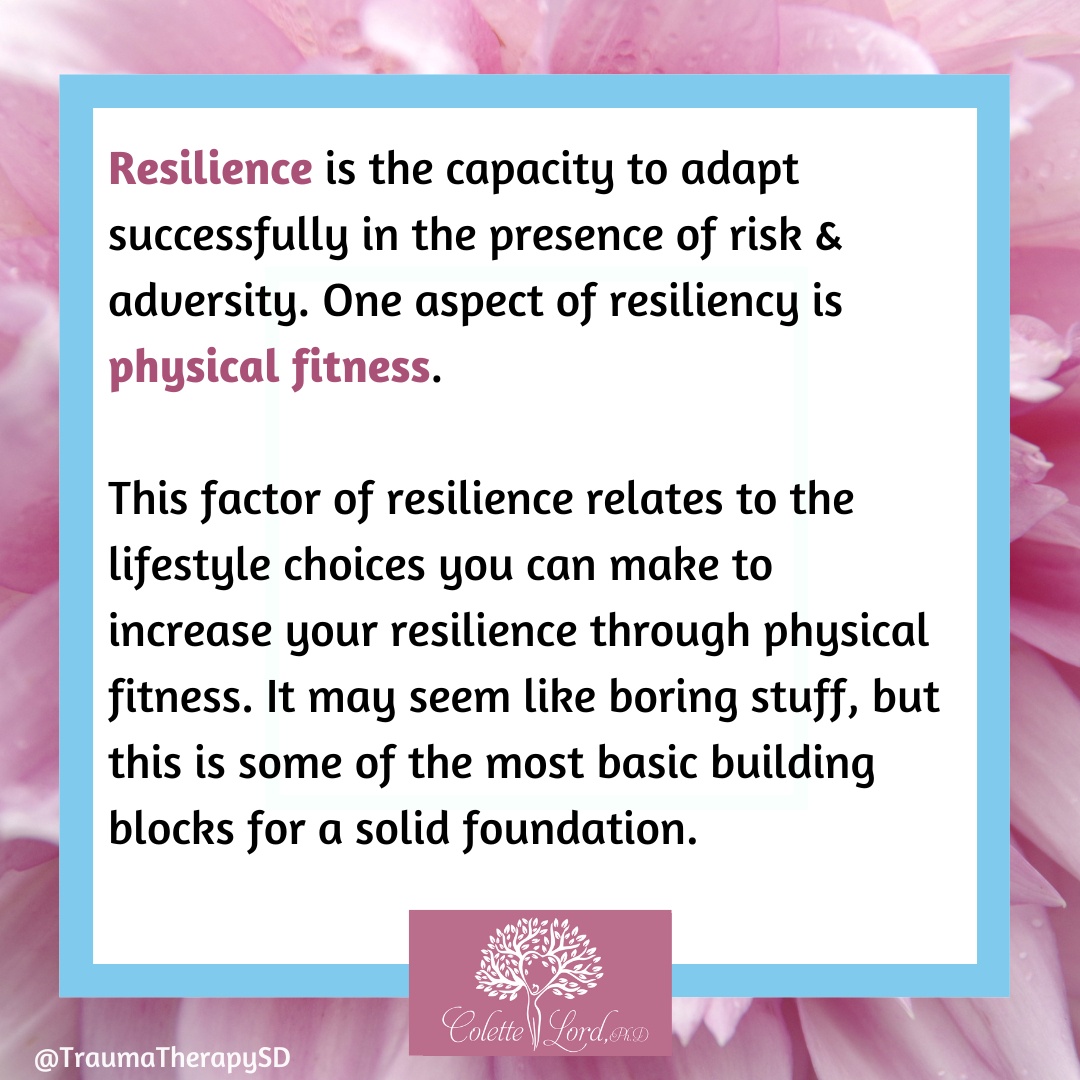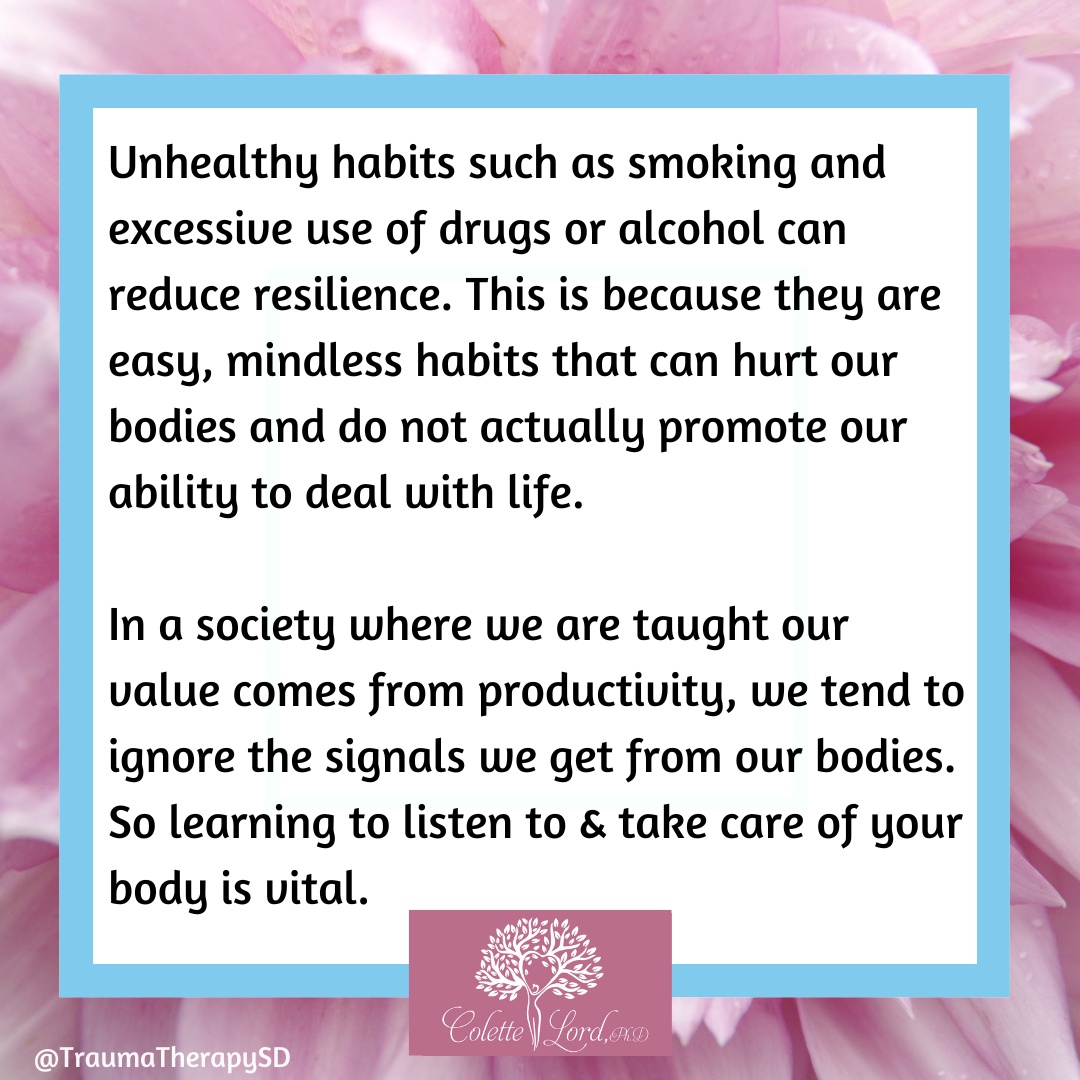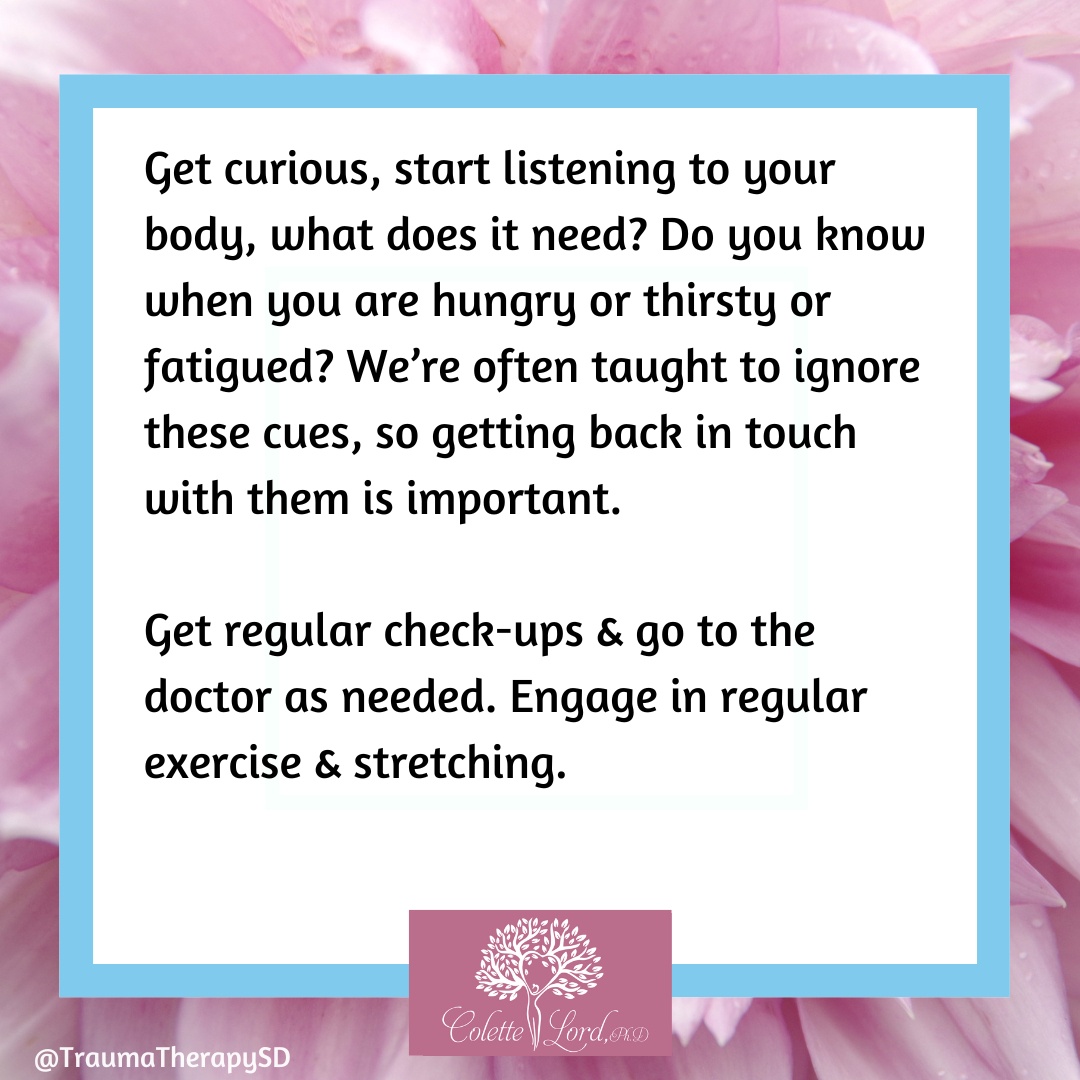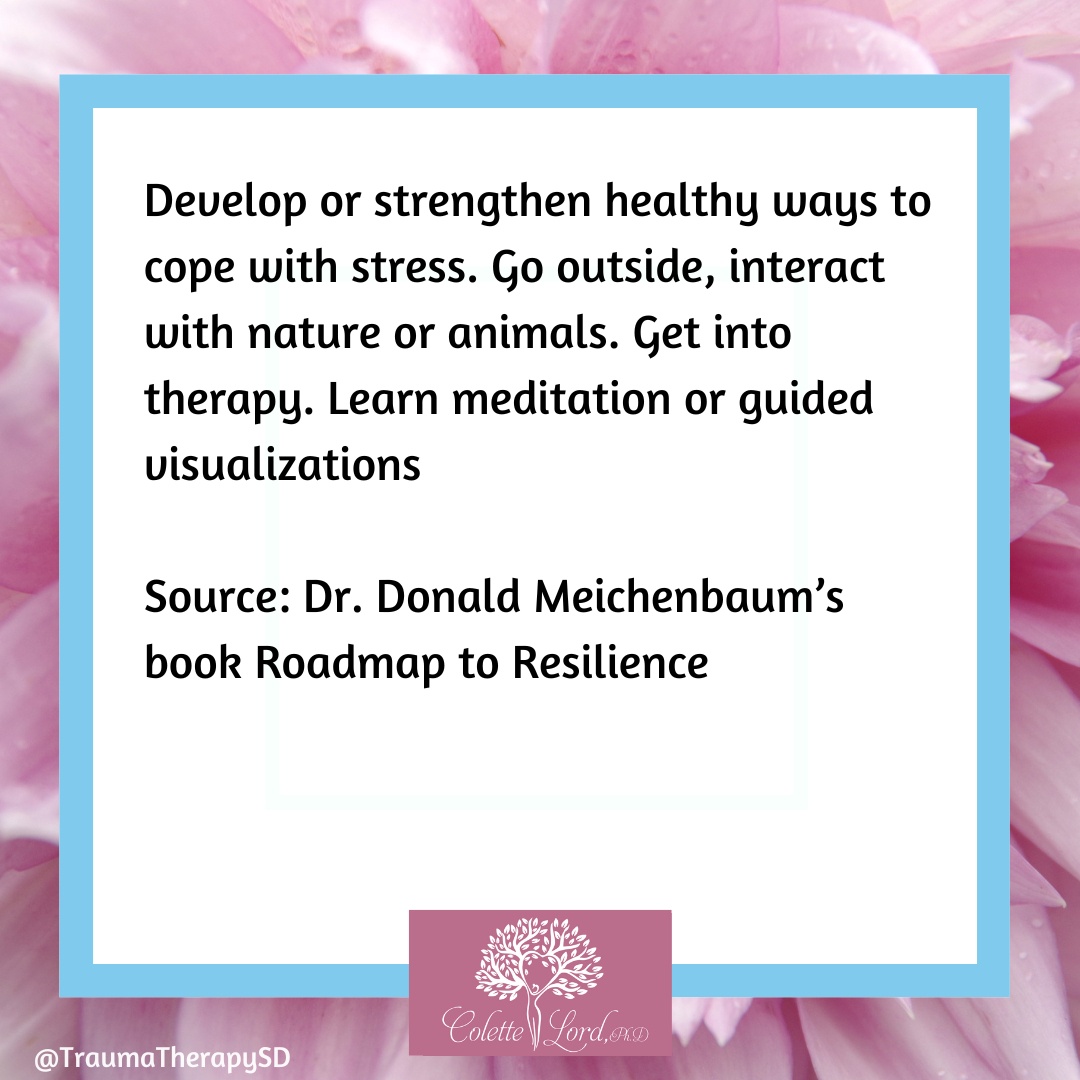Resilience – Physical fitness
Resilience is the capacity to adapt successfully in the presence of risk & adversity.
One aspect of resiliency is physical fitness. This factor of resilience relates to the lifestyle choices you can make to increase your resilience through physical fitness. It may seem like boring stuff, but this is some of the most basic building blocks for a solid foundation.
Unhealthy habits such as smoking and excessive use of drugs or alcohol can reduce resilience. This is because they are easy, mindless habits that can hurt our bodies and do not actually promote our ability to deal with life.
In a society where we are taught our value comes from productivity, we tend to ignore the signals we get from our bodies. So learning to listen to & take care of your body is vital.
Get curious, start listening to your body, what does it need? Do you know when you are hungry or thirsty or fatigued? We’re often taught to ignore these cues, so getting back in touch with them is important.
Get regular check-ups & go to the doctor as needed.
Engage in regular exercise & stretching. Get a good night’s sleep, & develop a regular sleep schedule. The average adult needs 7-9 hours of sleep a night. Sleep is a biological necessity & it’s when our brains naturally digests stressful or traumatic experiences from the day.
Work on developing a healthy diet. Your brain and body need fuel to cope with stressors. Develop or strengthen healthy ways to cope with stress. Go outside, interact with nature or animals. Get into therapy. Learn meditation or guided visualizations.
Source: Dr. Donald Meichenbaum’s book Roadmap to Resilience














